All these boat insurance coverages may blow your heads away if you don’t have any prior knowledge about them. As a payor, it is essential to know your boat insurance policy and all those coverages that you are getting. We will now see what does boat insurance generally covers?
Boat insurance usually covers collision coverage (with docks, boats, etc.), liability coverage (bodily injury & property damage to others), and comprehensive coverage (non-collision-related losses) in a standard policy. Yet, depending on the insurer, you can still add/remove coverages in your plan.
Collison, liability, and comprehensive coverages are the basic coverages you will get in a standard boat insurance policy. Based on your insurance company, you may get more or fewer coverages in one policy, and sometimes you can take additional coverages if you didn’t get what’s needed.
Depending on the insurance company, you may get 5 insurance covers (collision, liability, comprehensive, uninsured/underinsured coverage, and medical coverage) as one package or sometimes more or less in one standard insurance policy. So, choose your plans wisely.
Before looking at each insurance coverage’s details, you need to get familiarized with some of the insurer’s terms. You can skip those definitions part if you already know them.
1. Deductible – The deductible amount is the part of an insurance claim you have to pay. You can claim the insurance only if your insurance claim exceeds the deductible amount; otherwise, you can’t claim your insurance.
For example, a $10,000 covered loss with a $1,000 deductible will pay $9,000, which means you have to pay $1,000, and the insurance company will pay $9,000 for a $10,000 loss or damage to your boat. Therefore, look at those deductible amounts carefully before taking any insurance policy.
2. Coverage limits – The coverage limit is the total amount your insurance company will pay for any loss or damage to your boat. If your loss or damage exceeds that coverage limit, you have to pay the rest of the amount from your pocket.
For example, a $20,000 covered loss with a $15,000 coverage limit will pay you only $15,000, and you have to pay the rest of the amount, i.e., $5,000 from your wallet. Therefore, look at those coverage limits carefully before taking any insurance policy. However, you can increase that coverage limit by paying more premiums (money) each year.
Actual cash value vs. Agreed cash value
3. Actual cash value – The actual cash value is the amount you will get if you claim your insurance. The amount you will get depends on your boat’s current (depreciated) value based on age or wear and tear. If you have a total loss, your policy may not provide enough coverage to replace your boat.
4. Agreed cash value – The agreed cash value is the amount you will get if you claim your insurance. The amount you will get will be enough to repair or replace your boat with the same type and quality up to the agreed value. This is preferable to actual cash value, and it’s ideally expensive as well.
That being said, we will first see each insurance coverages (all types) in a detailed way. Then we will see does boat insurance covers theft, hurricane, outboards, sinking, equipment loss, freeze damages, trailer damages, vandalism, other drivers, etc., or not?
Related post – Do boat trailers need insurance? Check this article to know more about the insurance requirements for a boat trailer and to know whether your boat or homeowners insurance will cover the trailer or not.
What are the types of boat insurance coverages?

Important note – Generally, most insurance covers the damages only if they happened in the range of 100 or 200 miles or more, depending on your policy. If you go beyond that range, your insurer may not cover anything for you.
1. Collision coverage
Collision coverage pays for your boat if you are involved in any boating accident with other boats, docks, rocks, or anything related to your boat collision, regardless of your fault. From the name alone, you can tell what this coverage covers.
The collision coverage only covers your boat’s damages, not for other boats. If you are involved in any boating accident and have collision coverage, it will pay for your boat damages only; it won’t pay anything for other boats or other person’s injuries or other property damages.
It is always good to select your collision coverage, not only in the water. If anything happens to your boat outside the water, like collision while trailering, collision on land, etc., so that you can claim that amount from the insurer rather than from your pocket.
Basic Collision coverage insurance covers damages to:
- Motors
- Sails
- Hull damage
- Anchors
- Any equipment
Only two states have boat insurance laws—Arkansas and Utah. This means you should have boat insurance if you live in those areas and meets their credibility.
boat-ed
2. Liability coverage
Liability coverage pays if you cause any damage to other boats or cause any injuries to other persons while boating. Liability coverage doesn’t cover your own boating-related injuries or damages. So, basically, liability coverage will not cover anything for you; it will cover only the damages caused by your boat to others.
If your boat caused any damage to other boats due to any large waves or any others, liability coverage would cover those too. Liability coverage also protects you from covered claims and lawsuits, including payment of settlements and legal fees.
There are basically two types of liability coverages.
- Property damage liability
- Bodily injury liability
Property damage liability will pay for damages to the other property caused by your boat, and it won’t cover anything for your property damages. If you damage another person’s boat, dock, or any property with your boat, it will pay on behalf of you so that you don’t have to pay that money (by yourself).
Bodily injury liability will pay for other person’s injuries (all the medical bills) caused by your boat, and it won’t cover anything for your injuries. If you cause any injuries to other persons while driving the boat, it will pay on your behalf if you are unable to pay that money (by yourself).
If you injured someone with your boat or caused damage to other boats, this coverage could help pay their medical bills and income loss. Liability coverage is the most basic coverage issued by most insurance companies. With some good boat liability plans, you can cover court costs and settlements if you face a lawsuit.
In addition, if you plan to dock your boat, some marinas and harbors will require you to show proof of liability coverage. Most marinas require $100k’s or more in liability coverage if you want to keep your boat at the marina.
3. Comprehensive coverage
Comprehensive coverage pays for the damages caused for your boat other than collision-related like theft, vandalism, fire, etc. If anything happens to your boat due to any natural calamities like heavy winds, storms, hurricanes, and other weather-related damages, the comprehensive coverage will cover those bills as well.
Comprehensive coverage covers damages caused to:
- Boat
- Motors
- Hull damage
- Any equipment (permanent and portable boating equipment)
Comprehensive coverage and collision coverage are related to each other in terms of the claims. Both of them cover your boat if anything happens to your boat, not for other boats.
Want a discount on the boat insurance policy? Some insurance companies will give discounts if you complete a well-recognized boating safety course and carrying your license. Some insurance companies will also give discounts even if you carry all the required safety equipment in your boat.
4. Uninsured or Underinsured coverage
Uninsured coverage or Underinsured coverage pays for the damages caused to your boat by other boats that don’t have any insurance. Uninsured or Underinsured coverage also pays for bodily injury damages (and boat damages) if you or someone on your boat is injured in an accident with an uninsured or has little insurance or hit-and-run boater.
Boating insurance is not mandatory in many states, so many will be operating their boats without insurance (liability insurance mainly). If an uninsured boater hits your boat and if you have uninsured boat insurance, it will cover some of your damage expenses. So, it is good to have uninsured or underinsured coverage for your boat.
5. Medical coverage
Medical coverage pays your medical bills if you are involved in any boating accidents regardless of your fault. If you got injured in a boating accident, it would pay for first aid treatment, ambulance, hospital, and other costs that result from someone being injured on your boat, even if you are not legally responsible.
According to progressive, this coverage will begin once you’ve exhausted your health insurance coverage limits in some states. It is wise to select a coverage covering all the people who are injured in a boating accident rather than few people or just you. It’s good to have medical coverage if you don’t have uninsured coverage.
Suppose you are involved in a boating accident, and your health insurance company says they won’t pay the bill because you haven’t reached your deductible. So you can instead use your boat medical coverage, which has no deductible (for some insurance companies).
Your homeowner’s insurance policy can provide limited protection for your boat – but often only in certain circumstances or for a small boat, like when your boat is at home, in some cases. Generally, many smaller vessels, like kayaks and canoes, may fall under your homeowner’s insurance policy.
Benzinga
6. Additional coverages
Those 5 are some of the standard coverages you may get if you take a boat insurance policy. However, few companies won’t include uninsured coverage or underinsured coverage and medical coverage as part of their standard policy. So, choose your coverages wisely according to your needs.
So, what all coverages you will get under a “standard policy” mostly depends on the insurance company. However, you can add additional coverages to your policy as well. We will now see some of the additional coverages you can add to your boat insurance policy.
- Boat trailer coverage – Boat trailer coverage pays if anything happens to your boat trailer (not the boat). For example, a progressive insurance company will pay your expenses if your trailer breaks down within 100 miles from home. They will reimburse you up to $500 to cover food, hotel, and other transportation costs.
- Fuel spill coverage – Fuel spill coverage pays if anything happens to your boat related to fuel spills, including cleanup of fuel spills or leaks. It also covers if the government issues you a fine-claiming your fuel spill threatens marine life and makes the water unsanitary.
- Roadside assistance coverage – Roadside assistance coverage pays if anything happens to a towing vehicle. While trailering the boat, if your towing vehicle got any breakdowns, repairs, run out of gas, etc., roadside assistance coverage will cover that.
- Equipment coverage – Equipment coverage will pay for your fishing equipment (like a fishing rod, tackle box, safety equipment, etc.) or any electronic devices (like radar, GPS, AIS, etc.) in the boat that is lost or stolen, or damaged.
- Freeze coverage – Freeze coverage will pay for the damages caused by freezing temperatures. If you live in very cold regions, it is highly recommended to take freeze coverage in your standard insurance policy.
Those are some of the additional coverages you can add to your main insurance policy. But you need to pay extra for additional coverages. Still, here and there, you will see or hear many additional coverages, though.
So, choose your coverages wisely without wasting money on unnecessary coverages.
Related post – Why do I need a boating license? Check this article to know the 6 benefits you will get if you have a boat license.
How much does boat insurance cost?

Many questions will strike your mind if you are looking at a boat insurance policy, like what coverages are required? How much money are they going to take? Etc. So, we will now see how much money does boat insurance costs on average?
Boat insurance costs $350 per year on average; however, depending on the insurance company and the coverages you take, the insurance price may vary from $100 per year all way to $1000 per year or more sometimes. So, choose your plan wisely without any unnecessary coverages.
Your insurance policy’s overall price will mostly depend on the coverages you have taken rather than the company. If you take more additional coverages (like trailer coverage, roadside assistance coverage, oil spill coverage, etc.), the insurance premium will also increase all the way to $1,000 per year.
For example, if you keep your boat always in the water at the marina, you better need fuel spill coverage rather than trailer coverage. Similarly, based on your needs and requirements, you can untick or remove all the coverages that are not required (unnecessary) for your boat and can save some money.
Insurance companies will look at the state where you live, your boat’s age and size, how your boat is powered (sail, electric, gas), look at your previous insurance claims (sometimes, they will look at car insurance claims), and where you plan on using your boat (inland or international waters).
Boat insurance for a sailboat used on inland waters will be much different than insuring a large motorboat on the open seas. So, the premium (money) you need to pay for the boat insurance company every year depends on those and many other factors other than just the boat and company.
So, choose your boat insurance coverages wisely without wasting money on unnecessary coverages.
Does boat insurance cover theft?
Boat insurance will cover theft only if your insurance has comprehensive coverage in your boat insurance policy. Without comprehensive coverage in your insurance policy, your insurance will not cover boat theft or any damages related to non-collision like vandalize, storm, or hurricane damage.
A standard boat insurance plan will mostly have comprehensive coverage; if not, you can add it as additional coverage. The total amount you may get depends on your value plan (actual cash value or agreed cash value). Although without a proper sign of your boat gets stolen or anything, you can’t claim insurance.
So, if your boat gets stolen, you may have to show some proof to the insurance company to claim your money.
Does boat insurance cover boat sink?
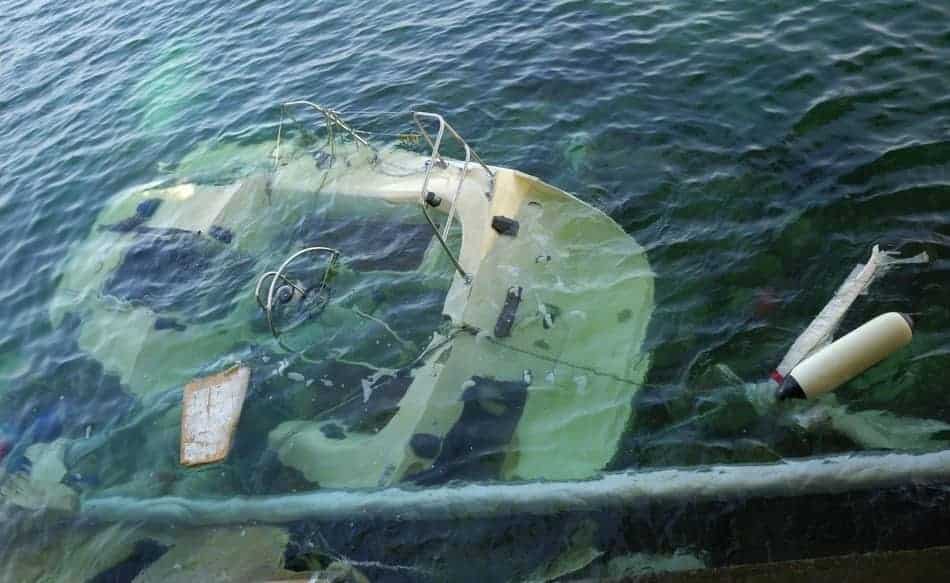
Boat insurance will cover a sunken boat; if your boat sunk due to a collision, you can claim the insurance if you have collision coverage. If your boat sunk due to natural calamity (non-collision-related issues), you can claim insurance if you have comprehensive coverage in your insurance plan.
A standard boat insurance plan will mostly have collision coverage and comprehensive coverage; if not, you can add it as additional coverage. The total amount you may get depends on your value plan (actual cash value or agreed cash value).
However, you may need to pay for removing or towing your boat out of the water if you don’t have wreckage removal coverage in your boat insurance policy.
Does boat insurance cover engine damage (cracked block)?
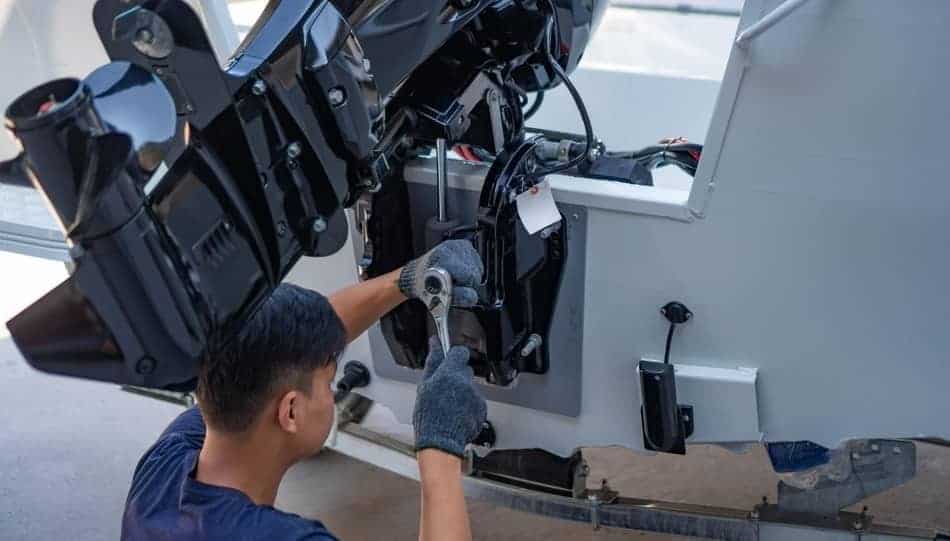
Boat insurance will cover engine damage or cracked engine block only if the damage happened to your engine is not-related to normal wear or tear due to lack of maintenance. If the motor is wrecked in an accident or stolen, boat insurance will cover those if you have collision/comprehensive coverage.
Boat engines require service and maintenance at regular intervals or after every ride, like cleaning to prevent corrosion or any. If you don’t do your maintenance regularly and got any problem, an insurer can determine the cause for the damage, and they could refuse to pay for your repairs.
Other than that, if anything happens to your engine (like collision, stolen, etc.), you can claim your insurance.
Does boat insurance cover storm or hurricane damage?
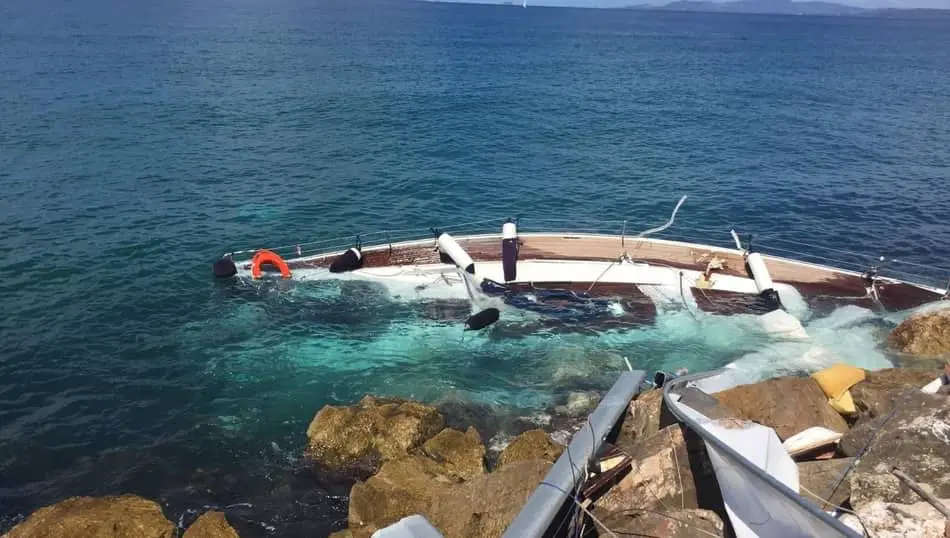
Boat insurance will cover storm or hurricane damages for your boat only if you have comprehensive coverage in your insurance policy. Otherwise, you can’t claim your insurance for damages related to non-collision like a storm, hurricane, vandalism, theft, and other damages.
A standard boat insurance plan will mostly have comprehensive coverage; if not, you can add it as additional coverage. The total amount you may get depends on your value plan (actual cash value or agreed cash value). With that, you can cover all the damages caused due to weather-related issues.
Comprehensive coverage will cover motors, sails, hull damage, safety equipment loss, etc., damages and losses.
Does boat insurance cover the trailer?
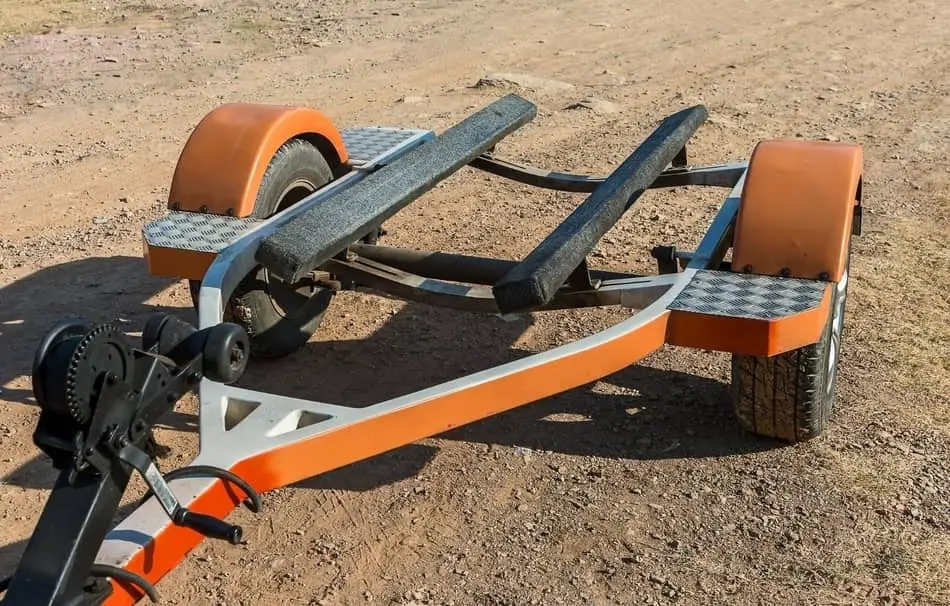
Boat insurance won’t generally cover trailers in their normal or standard boat insurance policy; you need to add trailer coverage to the insurance plan to cover any damages caused to your boat trailer. So, unless if you use the boat trailer, don’t take that additional insurance coverage.
Boat trailer coverage pays if anything happens to your boat trailer (not the boat). For example, a progressive insurance company will pay your expenses if your trailer breaks down within 100 miles from home. They will reimburse you up to $500 to cover food, hotel, and other transportation costs.
Related post – Do boat trailers need insurance? Check this article to know more about the insurance requirements for a boat trailer and to know whether your boat or homeowners insurance will cover the trailer or not.
Does boat insurance cover hit a rock or log?
Boat insurance will cover the damages caused to your boat if you hit the rocks or any floating logs in the water. Collision coverage comes in a standard boat insurance policy, and it will cover all the damages related to boat collision with other boats, docks, piers, rocks, logs, etc.
Hitting rocks or logs or anything while boating comes under boat collision coverage. Since most of the standard insurance policies will have collision coverage, you can claim the insurance if you hit (collide) anything in the water while boating.
This claim will only cover your boat damages, not for other boat damages or property or docks or anything other than your boat damage.
Does boat insurance cover vandalism?
Boat insurance will cover damages caused by vandalism for your boat if you have comprehensive coverage in your boat insurance policy. Otherwise, you can’t claim your insurance for damages related to non-collision like vandalism, theft, storm, hurricane, and other damages.
A standard boat insurance plan will mostly have comprehensive coverage; if not, you can add it as additional coverage. The total amount you may get depends on your value plan (actual cash value or agreed cash value). With that, you can cover all the damages caused due to vandalism, theft, and others that are not related to boat collisions.
Comprehensive coverage will cover motors, sails, hull damage, safety equipment loss, etc., damages and losses.
Does boat insurance cover freeze damage?
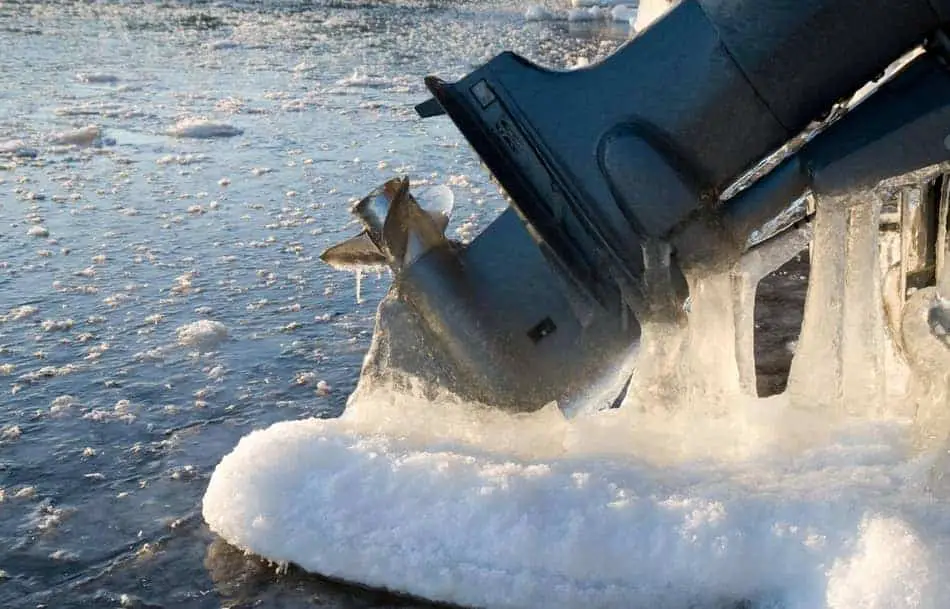
Boat insurance won’t generally cover the damages related to freezing (weather) in their normal or standard boat insurance policy; you need to add freeze coverage as additional coverage to the insurance plan to cover your boat’s freeze damages.
In most cases, this insurance primarily covers the engine and may or may not offers protection for the craft’s body. Ask your insurance agent what type of additional freeze coverage they offer and learn the terms of the coverage range before making your decision (source).
These types of additional insurance will offer protection from freezing temperatures. But to claim them, you need to do appropriate maintenance checks before storing them for the winter, like proper winterization before storing the boat, regular checks during winter, etc.
Does boat insurance cover other drivers (operators)?
Boat insurance will cover other drivers (operators) only if your friend’s name is there in the covered driver list or if you have any driver coverage. If you often give the boat to others, it is good to mention their names in the covered list to avoid future problems.
Only a few insurance companies will cover any driver operating your boat as long as they are not explicitly excluded from the policy. So, if you give your boat to others (children, siblings, other friends), it is best to consider those types of policies.
The key takeaways from the post
A standard boat insurance policy will cover collision coverage, liability coverage, and comprehensive coverage in general. Based on the insurance company, you can add/remove coverages in your policy. That’s why you can add additional coverages if you didn’t get what’s needed in a standard policy.
Similar to a car, boating insurance is essential for your boat. Although most states don’t require boat insurance except Arkansas and Utah, it doesn’t mean that you don’t have to worry about insurance unless you live in one of those two states.
Choose your boat insurance coverages wisely without wasting money on unnecessary coverages.
Please note:
The above is meant as general information and general policy descriptions to help you understand the different types of coverages. These descriptions do not refer to any specific contract of insurance, and they do not modify any definitions, exclusions, or any other provision expressly stated in any contracts of insurance.
We encourage you to speak to your insurance representative and read your policy contract to understand your coverages fully.
